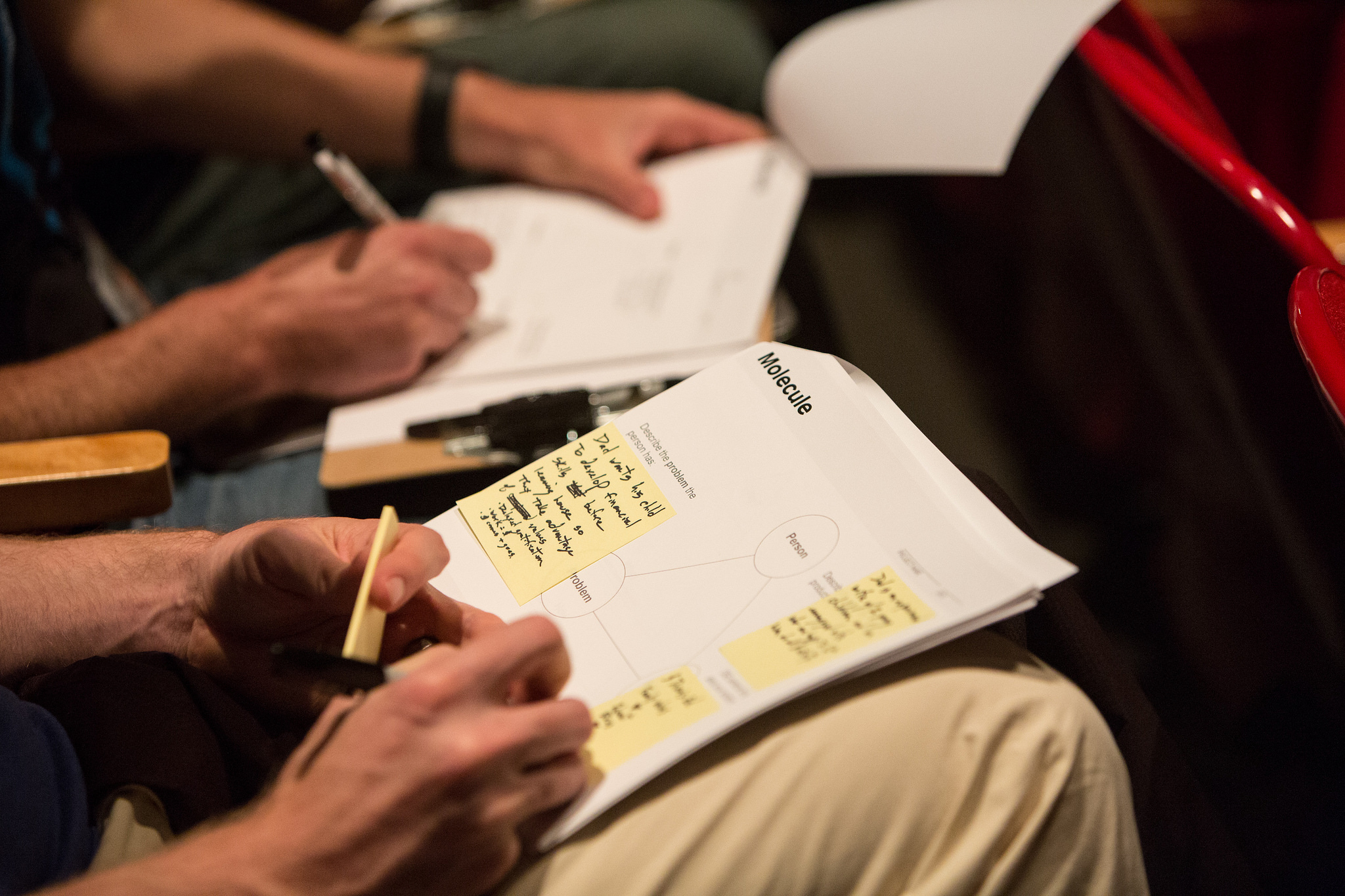Bringing the Lean Process to Big Finance Corporations

The Lean Startup methodology is often associated with innovative, small companies, but Andrew Breen, VP of Product Delivery at American Express, says he actually considers it a somewhat conservative approach. Not because it doesn’t enable change, but because its data-driven, customer-driven framework and systematic approach to product development actually make it an ideal way to bring innovation to big, established companies.
Previously, product management was somewhat of a ‘dark art,’ explained Andrew in his presentation at The Lean Startup Conference 2015. While it’s imperative that big corporations change from predictable environments to responsive ones, such evolution can present a huge challenge, especially without a framework for innovation. Building transparency and communication into product development is essential at organizations that aren’t used to being nimble.
When AmEx recognized the need to make a shift in order to stay current in the fast-growing payments world, they brought in Andrew to implement a Lean process right in the heart of the company’s customer service department. AmEx made the important decision to innovate within their existing framework, rather than create a separate labs division. This critical and strategic choice ensures new product development is woven into the fabric of the organization, leading to a more responsive culture overall.
Placed right in the thick of daily operations, Andrew set to work shifting the company’s mindset by implementing processes to facilitate change.
De-risking innovation
At big companies, there’s no shortage of new ideas, but there can be little incentive or opportunity to execute on them. What results is lots of conversation, and very little change. Lean Startup provides a framework for evaluating and mitigating the risk of new ideas. That means a focus on customer validation and understanding the requirements of the MVP. Once those are completed, it’s easy to grasp both the impact and the risk of a project.
Re-thinking the role of the customer
Many big companies have a process for testing a concept that isn’t likely to yield the most valuable information. For example, using employees to test products is fine for QA, but not if you’re truly seeking to build products that will increase customer engagement and satisfaction. Similarly, vetting a new concept with the customer advisory board or a group of most valued customers might make them feel good, but it won’t necessarily tell you what you need to know. Innovation requires validating new ideas with a large group of users (think thousands) and picking customers who aren’t already your biggest fans. That’s where you’ll find the insight that drives growth.
Breaking Down Departmental Silos
Part of the reason product development happens slowly at big companies is because teams are set up to function as an assembly line rather than a collaborative group. They suffer from what Andrew calls the ‘throw it over the wall mentality.’ Product tosses it to design, who tosses it to engineering. A better way to approach development is with Lean Squads, where one member of each functional team joins a project/product team and collaborates with the other stakeholders from the get-go. Not only does this help you work smarter, with better ideas and efficient troubleshooting, it can also help you work faster, as each member of the team fully understands the project and their specific role.
Above all, there is shift in culture and mentality that needs to take place in order for an organization to make the transition to Lean. It’s a shift that must happen at the managerial level, so that employees understand they need to do more than just deliver. Across the organization, everyone must be measured on the actual performance of products. That doesn’t mean they can’t fail, it means that experimentation and learning are smaller, valuable goals on the path of production. Creating smaller projects where testing and learning are not only supported but mandated is the best way for big companies to make significant transformations.
Hear Andrew Breen speak about changing the corporate culture for innovation at Lean Startup Labs: Enterprise Summit in New York City on Feb 25. Or immerse yourself in a full week of Lean Startup methodology and entrepreneurship at Lean Startup Week in San Francisco, Oct 31 – Nov 6.
